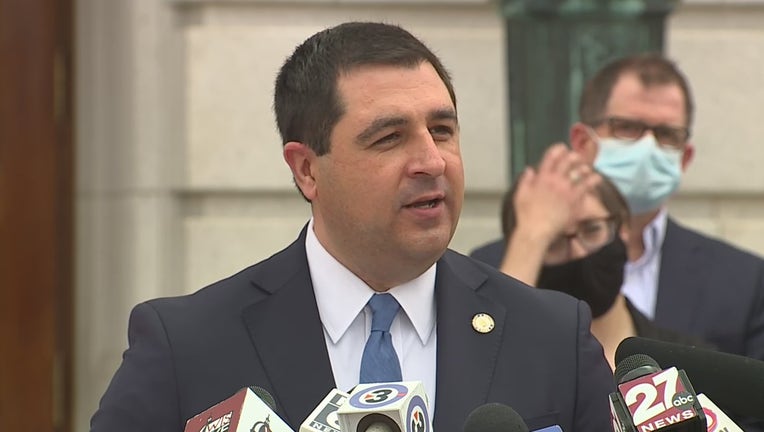Kaul to seek permission to drop multistate abortion lawsuit

Wisconsin Attorney General Josh Kaul
MADISON, Wis. - Democratic Attorney General Josh Kaul will try to persuade Republicans on the Legislature's budget committee on Thursday to let him join a multistate decision to drop a lawsuit challenging Trump administration obstacles to abortion.
Twenty Democratic-led states, including Wisconsin, California and Oregon, sued the Trump administration in 2019 after it created a rule banning taxpayer-funded family planning clinics from referring patients to abortion providers and prohibiting federally funded family planning clinics from being housed in the same facility as abortion providers.
The 9th U.S. Circuit Court of Appeals upheld the rule in February 2020. The states asked the U.S. Supreme Court to take the case, which it agreed to hear.
But the states decided to drop the lawsuit after the Biden administration said it would undo the rule by the end of the year, according to a state Justice Department memo. The states hope to file a dismissal by June 28. But Kaul isn't free to go along with that decision on his own.
Wisconsin Republicans passed a series of laws in late 2018 after Kaul was elected but before he took office that require the state attorney general to get the budget committee's permission before settling or dismissing lawsuits. Kaul is set to appear before the committee Thursday in hopes of convincing the panel to let him join the dismissal agreement.
"In light of the proposed changes to the (ban), which are expected to take effect at the end of this year, the plaintiff States have agreed to voluntarily dismiss their claims without prejudice," Wisconsin DOJ Division of Legal Services Administrator Charlotte Gibson wrote to budget committee members in the memo.
FREE DOWNLOAD: Get breaking news alerts in the FOX6 News app for iOS or Android
Aides to Sen. Howard Marklein and Rep. Mark Born, the co-chairmen of the budget committee, didn’t immediately respond to messages seeking comment.
The state Supreme Court ruled in July that the lame-duck laws are valid on their face but left the door open for challenges to how they're applied. Kaul filed such a challenge in November, alleging he doesn't need permission to settle cases involving environmental or consumer protection laws or cases involving executive agencies.

Feds inspected Illinois chemical plant weeks before blast
A northern Illinois chemical plant that was rocked by an explosion and massive fires that prompted evacuations was inspected by a federal agency less than a month before the blast sent debris raining down onto nearby areas.

